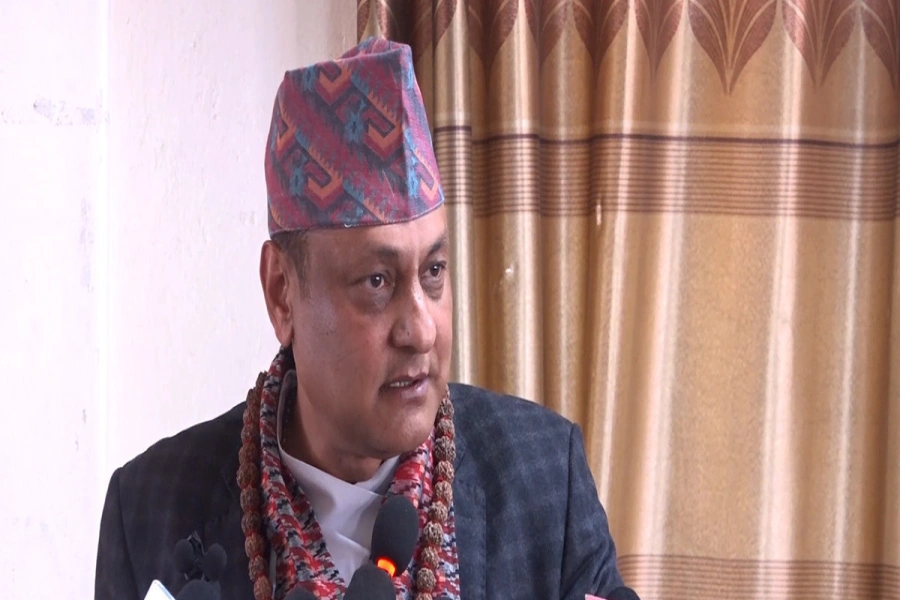And how to prevent/cure them
The rainy season brings about a plethora of infections and diseases that range from indigestion and skin irritations to fever and flu. While staying indoors and away from rain and human contact is the best way to prevent all of these conditions, that isn’t a practical solution. Here, Dr Saroj Ghimire, physician at Swastha Health Clinic, talks to The Week about how we can prevent and cure some health problems that are common this season.
Stomach and digestion related problems
The constant fluctuation in weather – from sunny and hot to wet and cold – causes great distress to your stomach. The increase in humidity also imbalances the gas in your system. Additionally, the acidity level of everything in the ecosystem increases – including vegetation and everything we eat – and that further weakens your digestive system. You might feel stuffy and nauseous very often but try to eat something light even when you don’t feel like it because an empty stomach will definitely lead to indigestion.
Health Tips for a rainy day

Cereals, fresh fruits and vegetables should be consumed regularly during the rainy season. They are light and contain nutrients that help your body build its immunity. Avoid oily, spicy and fried food. You should also stay away from street food because it’s especially unhygienic during the monsoon. Include a bit of honey, turmeric and ginger in your food in some way because these destroy harmful microbes in your stomach, prevent infections, and aid the digestion process.
Seasonal flu and common cold
Common cold and flu are almost unavoidable during the monsoon season. You will definitely be down with flu if you have the misfortune of getting wet in the rain but that isn’t the only thing you should be wary of. Avoid direct contact with anyone with flu or cold. Environmental temperature drops during the rainy season and that impairs your immune system – meaning you’ll catch things like flu and cold quickly and they’ll affect your body for a long time.
To avoid getting the flu or common cold during this season, take a waterproof outer layer (that will protect you from rain) with you wherever you go. Wear shoes that don’t get wet easily or are water repellant and avoid ones that will drench your socks. In case you come down with flu, drink loads of liquid – especially water, fresh juices and hot soup. Getting enough rest will also strengthen your immune system so that it can fight off the illness faster.
Skin related diseases
The rain is especially harsh on your skin. Humidity and heat make the skin more vulnerable to rashes, irritation and a horde of infections. Athlete’s foot is very common during the rainy season. It’s a condition where you foot is itchy and develops rashes and scaly patches due to fungal infection. It occurs mostly because of prolonged contact with fungus present in dirty water or sweat. Another common skin problem caused by fungal infection during monsoon is ringworm where itchy red patches form on your skin. It’s communicable condition that is transferred through skin-to-skin contact and lasts months before slowly disappearing with proper treatment.
Various other skin allergies and rashes throughout your skin – especially on your legs, arms, neck and face – are very common during monsoon. To prevent most of these problems, Dr Ghimire recommends keeping your skin as dry as possible at all times. The fungus and bacteria that cause all of these skin problems thrive in damp and dirty environment so if you keep your skin clean and dry, you will be safe from most of these conditions.
Don’t wear tight and form fitting clothes. Rather, opt for loose clothing made from light and breathable fabrics. You should also avoid staying in wet clothes for a long time. Either opt to wear clothing items that dry easily or are waterproof. Or you could also wear short sleeves and short bottoms. As for footwear, wear rubber sandals and slippers or above the ankle boots made from waterproof materials. Make sure you take a shower every night before bed and wash your legs – especially your feet (and in between your toes) – arms and neck thoroughly.



































